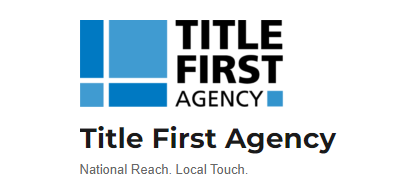
Purchasing a home is more than just a financial transaction—it’s a life-changing decision that requires careful planning, strategic thinking, and informed choices. This guide will walk you through the most critical mistakes to avoid, ensuring your home-buying journey is smooth, successful, and stress-free.
1. Skipping the Professional Home Inspection: A Costly Gamble
The Mistake: Bypassing a comprehensive home inspection in the excitement of finding your perfect property.
A professional home inspection is your first line of defense against potential hidden problems that could transform your dream home into a financial nightmare. These detailed assessments go far beyond a casual walkthrough, diving deep into the home’s structural integrity and identifying potential issues that might be invisible to the untrained eye. Certified inspectors use specialized equipment like thermal imaging cameras and moisture meters to uncover problems that could cost you thousands in future repairs.
Structural assessments reveal critical information about the home’s foundation, checking for signs of settling, cracks, or water damage that could compromise the entire structure. Electrical and plumbing system evaluations can expose outdated wiring, potential code violations, or hidden leaks that might not be apparent during a casual viewing. Imagine discovering significant foundation issues or extensive electrical problems after you’ve already signed the mortgage—a $400 inspection can literally save you $10,000 or more in unexpected repairs.
Pro Tip: Always hire a certified home inspector with excellent reviews and ask to accompany them during the inspection. This allows you to ask questions and understand the home’s condition firsthand, giving you valuable insights into your potential investment.
2. Overlooking Your Evolving Lifestyle Needs
The Mistake: Purchasing a home that only fits your current life stage without considering future changes.
Buying a home is not just about meeting your immediate needs—it’s about anticipating and planning for your future self. Many homebuyers make the critical error of focusing solely on their current lifestyle without considering how their lives might change in the next five to ten years. Your dream home should be a flexible canvas that can adapt to your evolving personal and professional journey.
Consider your potential career trajectory—might you need a home office or workspace? Are you planning to start a family, which would require additional bedrooms or play spaces? Perhaps you’re considering the possibility of caring for aging parents, which might necessitate a ground-floor bedroom or accessible bathroom. Remote work has dramatically transformed how we use our living spaces, making flexible floor plans more important than ever. A home that seems perfect today might feel restrictive in just a few years if you haven’t considered these potential life changes.
Smart Approach: Create a 5-10 year life plan and match your home search to potential future scenarios. Look for homes with adaptable spaces, potential for expansion, and floor plans that can grow and change with your life’s different stages.
3. Financial Overextension: The Budget Trap
The Mistake: Maxing out your mortgage approval and ignoring additional homeownership expenses.
Financial experts often caution against the temptation of purchasing a home at the absolute maximum of your approved mortgage range. What looks affordable on paper can quickly become a financial strain when you factor in the multitude of hidden costs associated with homeownership. Beyond the monthly mortgage payment, homeowners face a complex landscape of additional expenses that can significantly impact their financial health.
Property taxes can range from 1-3% of your home’s value annually, representing a substantial recurring cost that many first-time buyers overlook. Homeowners insurance, maintenance, and repair costs add another layer of financial complexity. Most financial advisors recommend setting aside 1-4% of your home’s value each year for maintenance and unexpected repairs. Utility expenses, potential homeowners association (HOA) fees, landscaping costs, and the initial expenses of furnishing and moving into a new home can quickly accumulate.
Budgeting Strategy: Create a comprehensive spreadsheet tracking all potential housing-related expenses before making an offer. Aim to spend no more than 25-30% of your monthly income on housing and maintain an emergency fund covering 3-6 months of home-related expenses to provide a financial safety net.
4. Neighborhood Neglect: Location Is Everything
The Mistake: Focusing exclusively on the house while ignoring its surrounding environment.
The old real estate adage “location, location, location” continues to ring true for good reason. A beautiful home can quickly lose its luster if situated in a problematic neighborhood. Comprehensive neighborhood assessment goes far beyond a simple drive-through, requiring deep and thoughtful research into the area’s current status and future potential. School districts, crime rates, local infrastructure, and community development plans all play crucial roles in determining not just your quality of life but also the long-term value of your investment.
Potential homebuyers must become detective-like in their approach, gathering information from multiple sources. Local crime statistics, school ratings, upcoming municipal development plans, and community demographics provide a holistic view of the neighborhood’s character. Consider the proximity to essential amenities like grocery stores, healthcare facilities, parks, and public transportation. Traffic patterns, noise levels, and the general maintenance of surrounding properties offer critical insights into the area’s overall health and desirability.
Research Technique: Visit the neighborhood at different times of day, engage with local residents, check online community forums, and review city planning documents. Your goal is to understand not just the current state of the neighborhood but its potential trajectory in the coming years.
5. Mortgage Pre-Approval: Your Home-Buying Compass
The Mistake: House hunting without understanding your true buying power.
Mortgage pre-approval is more than just a piece of paper—it’s a strategic tool that provides clarity, confidence, and credibility in the home-buying process. Many eager homebuyers make the mistake of searching for homes without first understanding their true financial capabilities. A comprehensive pre-approval goes beyond a casual conversation with a bank, offering a precise breakdown of your borrowing potential based on a thorough examination of your financial health.
The pre-approval process involves a detailed review of your credit history, current income, existing debts, and overall financial stability. This rigorous assessment helps identify any potential credit issues early, giving you time to address them before making an offer on a home. Sellers view pre-approved buyers as serious and financially responsible, which can provide a significant advantage in competitive markets. Moreover, the process helps you understand exactly how much home you can afford, preventing the heartbreak of falling in love with a property outside your financial reach.
Preparation Steps: Maintain stable employment, minimize new credit inquiries, pay down existing debts, and gather comprehensive financial documentation. Consider working with a mortgage broker who can provide personalized guidance tailored to your specific financial situation.
6. Emotional Decision-Making: The Heart vs. Head Battle
The Mistake: Allowing emotions to override logical, financial considerations.
The home-buying process is inherently emotional. That perfect kitchen, the charming backyard, or the nostalgic feel of a particular neighborhood can quickly cloud rational judgment. Many buyers fall into the trap of making impulsive decisions driven by excitement, fear of missing out, or an idealized vision of home ownership. This emotional rollercoaster can lead to overlooking significant property issues, overpaying, or choosing a home that doesn’t truly meet your long-term needs.
Successful home buying requires a delicate balance between emotional connection and objective analysis. Develop a systematic approach that allows you to appreciate a home’s aesthetic appeal while simultaneously conducting a rigorous evaluation of its practical merits. Create a detailed, non-negotiable criteria list that includes both emotional and practical considerations. Consider developing a scoring system that objectively rates potential properties against your predetermined requirements.
Balanced Strategy: Bring an objective friend or financial advisor during home viewings. Take time for reflection between viewings, and give yourself permission to walk away from properties that don’t meet your comprehensive criteria, no matter how appealing they might seem at first glance.
7. Resale Value: Future-Proofing Your Investment
The Mistake: Purchasing an overly personalized or uniquely designed home with limited market appeal.
While your home should reflect your personal style, it’s crucial to consider its potential resale value. Extremely custom renovations, unusually specific design choices, or architectural elements that deviate significantly from neighborhood standards can dramatically limit your property’s future marketability. Your home is not just a living space—it’s a financial investment that should appreciate over time.
Consider the broader context of your local real estate market. Homes that maintain architectural consistency with their surrounding neighborhoods tend to hold value more effectively. This doesn’t mean your home should be boring or lack personality, but rather that it should have a timeless quality that appeals to a broad range of potential future buyers. Pay attention to renovation choices that add genuine value—updated kitchens and bathrooms, energy-efficient features, and flexible living spaces are typically smart investments.
Investment Wisdom: Think like a future seller, even as you’re buying your dream home. Choose design elements, upgrades, and features that balance personal enjoyment with broad market appeal.
The Bottom Line: Your Informed Home-Buying Journey
Purchasing a home is a complex process that demands careful planning, research, and strategic thinking. By avoiding these common pitfalls, you’ll transform your home-buying experience from potentially stressful to confidently successful.
Final Advice: Take your time, do thorough research, and trust your comprehensive, well-informed decisions.

 See Our National Coverage Map
See Our National Coverage Map

